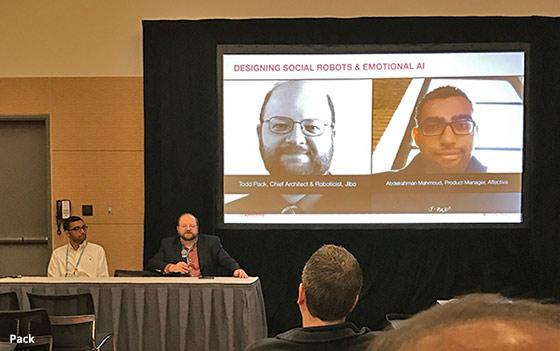
There are two approaches in how consumers start
their interactions with voice assistants, different kinds of drones are now flying and city trash containers are being outfitted with beacons for consumer tracking.
These were just a few of
the many tidbits of connected info this week that came out of the first day of the annual LiveWorx 17 conference that IoT powerhouse PTC hosts every year at the Boston Convention and Exhibition
Center.
In addition to keynote addresses, the 5,000+ attendees could attend any of the more than 230 separate presentation sessions scattered throughout the massive convention center
complex.
Helen Greiner, founder and CTO of CyPhy Works, showed videos of a drone that can fly to 400 feet but remains tethered by wire to a ground controller. This allows the drone to stay up
for an unlimited amount of time, unlike typical battery-operated devices that have to return after relatively short trips for charging.
The tethered drone was used to monitor the Boston
Marathon from above this year.
Leila Dillon, vice president, global marketing, at Bigbelly, a company that installs connected solar-powered waste receptacles on city sidewalks, said the
company could install beacons in the devices.
“They would be hidden in plain sight,” said Dillon.
Robert Pack, chief architect and roboticist at Jibo, a social robot I
wrote about here last year (New Doorways To Advertising: Meet Jibo, The Social
Robot), shared some interesting insights his company learned regarding digital voice assistants.
To start an interaction with a digital assistant, a hot word is needed. Siri
requires a ‘Hey, Siri’ to start listing, for example.
However, the catch is the amount of time left by the consumer between saying the hot word and asking the question or giving a
command, time lags that have to be built into the initial design.
Pack said in the course of researching the time lag, the company found an interesting phenomenon.
“There are two
kinds of people,” Pack said. “There are those who say ‘Alexa what is the weather today’ and those, like me, who say ‘Alexa’ and wait 10 seconds, and then ask the
question.”
The technology essentially can handle either. Maybe people, not so much.